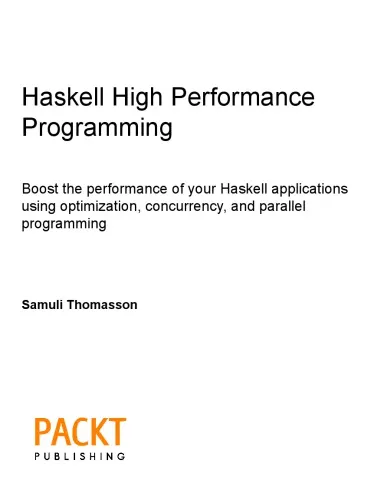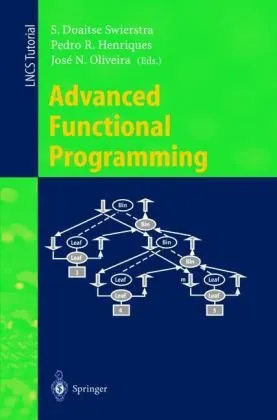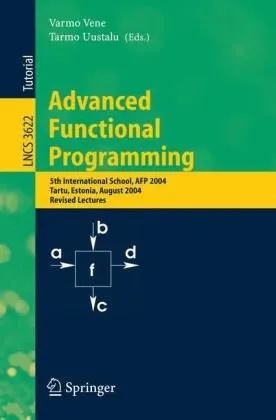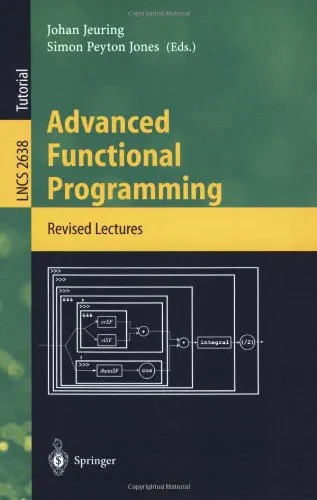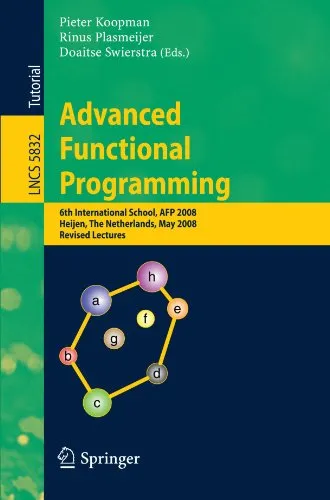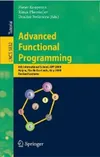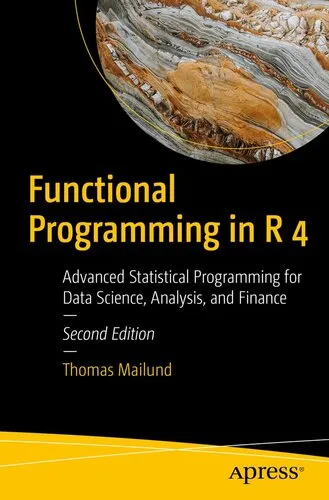Hybrid eager and lazy evaluation for Haskell (Ph D thesis)
4.0
بر اساس نظر کاربران

شما میتونید سوالاتتون در باره کتاب رو از هوش مصنوعیش بعد از ورود بپرسید
هر دانلود یا پرسش از هوش مصنوعی 2 امتیاز لازم دارد، برای بدست آوردن امتیاز رایگان، به صفحه ی راهنمای امتیازات سر بزنید و یک سری کار ارزشمند انجام بدینکتاب های مرتبط:
مروری کلی بر کتاب
کتاب Hybrid eager and lazy evaluation for Haskell (رساله دکترا) نوشته Maessen J-W، به بررسی ترکیب ارزیابی eager و lazy در زبان برنامهنویسی Haskell میپردازد. Haskell به خاطر ویژگی lazy evaluation خود معروف است که به گونهای عمل میکند که محاسبات تنها زمانی اجرا میشوند که به نتایج آنها نیاز است. در مقابل، eager evaluation نتایج را به محض رسیدن اجرا میکند. این کتاب به دنبال توسعه رویکردی است که نقاط قوت هر دو روش را با یکدیگر ترکیب کرده و کارایی و بهرهوری برنامهها را افزایش دهد.
خلاصهای جامع از کتاب
در این رساله، نویسنده به بررسی عمیق مفاهیم فنی و نظری lazy و eager evaluation پرداخته و راهکارهایی برای ترکیب موثر این دو روش ارائه میدهد. در شرایطی که Haskell به صورت سنتی از lazy evaluation استفاده میکند، این تحقیق سعی دارد با معرفی hybrid evaluation فرصتی برای بهبود عملکرد و کاهش پیچیدگیهای ناشی از ارزیابیهای غیرضروری ایجاد کند. Maessen برای تحقق این هدف از ابزارهای نظری متنوع مانند تحلیل دادهای و شبیهسازیهای کامپیوتری بهره گرفته است.
نکات کلیدی
- ترکیب مزایای eager و lazy evaluation برای بهبود عملکرد کد.
- ارائه مدلهای ریاضی برای تحلیل کارایی hybrid evaluation.
- مطالعه رفتار Haskell در مواجهه با حجم بالای دادهها.
- پیشنهاد تکنیکهای بهینهسازی برای استفاده عملی از hybrid evaluation.
جملات معروفی از کتاب
"ترکیبی جدید میتواند محدودیتهای موجود در هر دو روش ارزیابی را کاهش داده و در عین حال بهرهوری را بهبود بخشد."
"مسیر بهینه در بررسی کد، احترام به طبیعت هر دو روش ارزیابی است: lazy و eager."
اهمیت این کتاب
این رساله دارای اهمیت ویژهای است زیرا فصل جدیدی در بررسی کارایی برنامهنویسی تابعی میگشاید. با تمرکز بر راهحلهای hybrid evaluation، میتوان بهینهسازیهای قابل توجهی در عملکرد کدهای Haskell و کاهش هزینههای محاسباتی ایجاد کرد، که این امر برای کاربردهای عملی و واقعی بسیار ضروری است. افزون بر این، ارائه مدلهای نظری و ابزارهای تحلیل در کتاب، راهنمای مناسبی برای پژوهشگران و توسعهدهندگان است تا رویکردهایی نوین در طراحی و اجرای برنامههای کامپیوتری ارائه دهند. این کتاب به درک بهتر برنامهنویسی تابعی و کشف پتانسیلهای جدید در زمینه فناوری اطلاعات کمک میکند.
Introduction to 'Hybrid Eager and Lazy Evaluation for Haskell (Ph.D. Thesis)'
Welcome to an exploration of evaluation strategies within functional programming, particularly applied to the Haskell programming language. The book 'Hybrid Eager and Lazy Evaluation for Haskell (Ph.D. Thesis)' delves into the nuances and intricacies of combining eager (strict) and lazy (non-strict) evaluation techniques to maximize efficiency and provide a robust framework for Haskell developers. This introduction aims to give you an overview of what to expect from the book, focusing on its thematic essence, pivotal lessons, and significant contributions to the field.
Detailed Summary
Hybrid Eager and Lazy Evaluation for Haskell presents a comprehensive analysis of evaluation strategies that straddle the line between eager and lazy paradigms. The book systematically breaks down the operational semantics and pragmatic implications of applying hybrid evaluation techniques in functional programming, more specifically within Haskell. Given Haskell's strong inclination towards lazy evaluation, the thesis explores scenarios where eager evaluation could complement lazy evaluation for optimized performance without compromising Haskell's declarative nature.
A crucial aspect covered is the language's capability to selectively apply evaluation strategies at a granular level, enabling developers to harness the benefits of both worlds. Through detailed examination and empirical evidence, the book demonstrates how a strategic blend of evaluation approaches can lead to performance gains in various computational contexts. The text is enriched with illustrative examples, comparative analyses, and a solid theoretical foundation that underscores the dual evaluation approach's viability.
Key Takeaways
- Dual-Evaluation Mechanism: Understand the mechanics and benefits of integrating eager and lazy evaluation in Haskell.
- Performance Optimization: Learn how hybrid evaluation can contribute to more efficient resource management and execution times.
- Practical Implementation: Gain insight into implementing these strategies in real-world Haskell applications.
- Advanced Haskell Features: Deepen your knowledge of Haskell's capabilities and extend your functional programming expertise.
Famous Quotes from the Book
"In the delicate dance between laziness and eagerness, finding harmony is the cornerstone of functional programming's evolution."
"Efficiency in computation is not merely a quest for speed but an endeavor for balance and appropriateness in evaluation."
Why This Book Matters
This book is a significant contribution to the landscape of functional programming, particularly for researchers, advanced students, and practitioners of Haskell. It challenges the traditional confines of evaluation strategies and opens new avenues for improving computational efficiency. For those vested in developing high-performance applications, this thesis provides the tools and frameworks necessary for pushing the boundaries of what Haskell can achieve. Furthermore, by adopting a hybrid approach, developers are equipped to make informed decisions, optimizing codebases to suit diverse and complex computational requirements.
As functional programming continues to gain traction in the software development world, understanding evaluation techniques at a granular level becomes indispensable. This thesis not only elevates one's technical know-how but also inspires an appreciation for the subtle yet profound impacts of evaluation strategy choices on software performance and sustainability.
دانلود رایگان مستقیم
شما میتونید سوالاتتون در باره کتاب رو از هوش مصنوعیش بعد از ورود بپرسید
دسترسی به کتابها از طریق پلتفرمهای قانونی و کتابخانههای عمومی نه تنها از حقوق نویسندگان و ناشران حمایت میکند، بلکه به پایداری فرهنگ کتابخوانی نیز کمک میرساند. پیش از دانلود، لحظهای به بررسی این گزینهها فکر کنید.
این کتاب رو در پلتفرم های دیگه ببینید
WorldCat به شما کمک میکنه تا کتاب ها رو در کتابخانه های سراسر دنیا پیدا کنید
امتیازها، نظرات تخصصی و صحبت ها درباره کتاب را در Goodreads ببینید
کتابهای کمیاب یا دست دوم را در AbeBooks پیدا کنید و بخرید
1450
بازدید4.0
امتیاز0
نظر98%
رضایتنظرات:
4.0
بر اساس 0 نظر کاربران
Questions & Answers
Ask questions about this book or help others by answering
No questions yet. Be the first to ask!
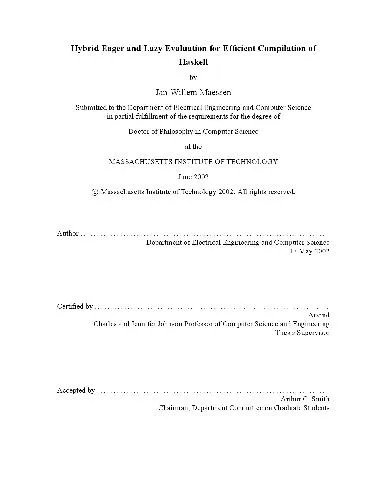

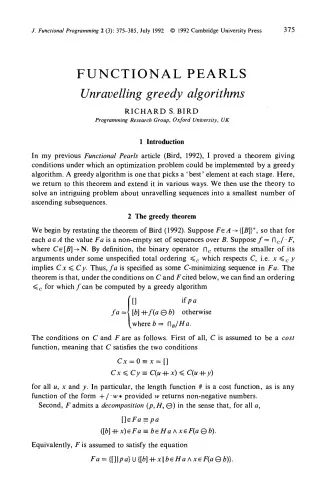
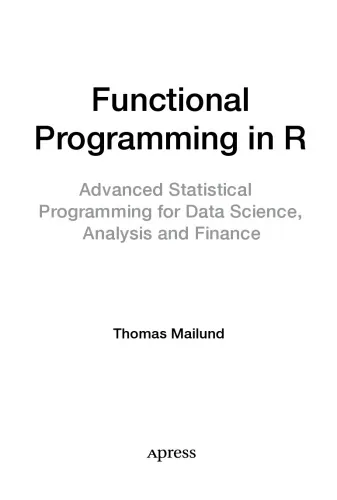
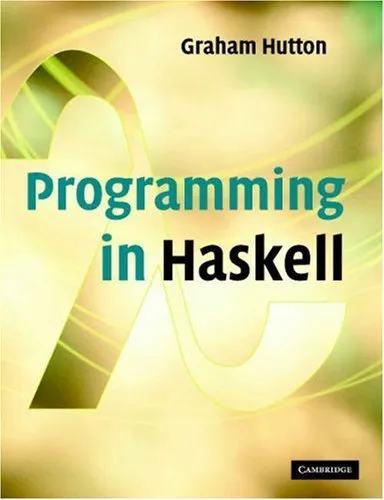
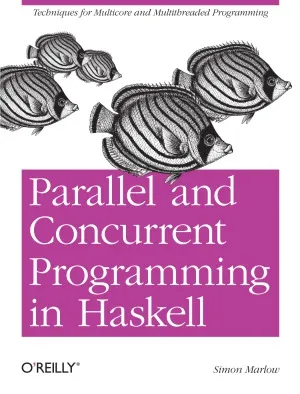
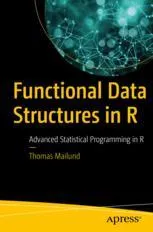
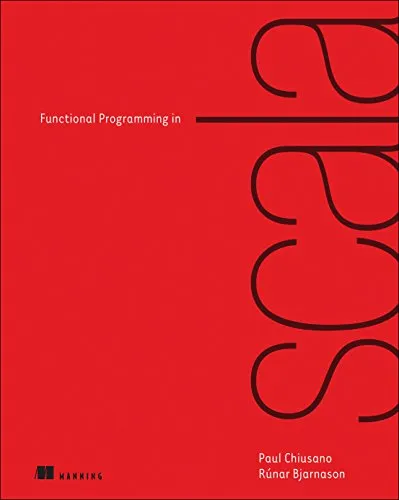
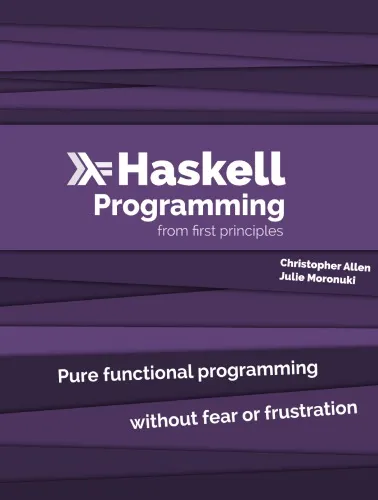
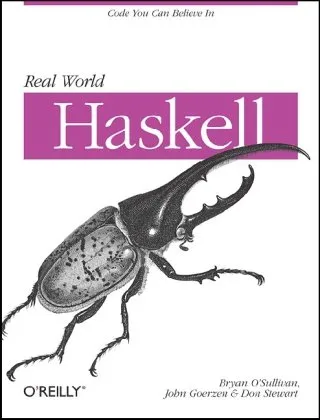
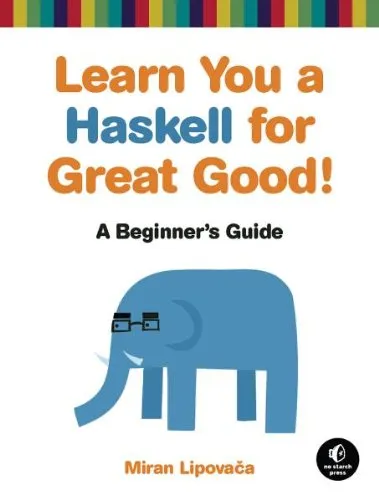
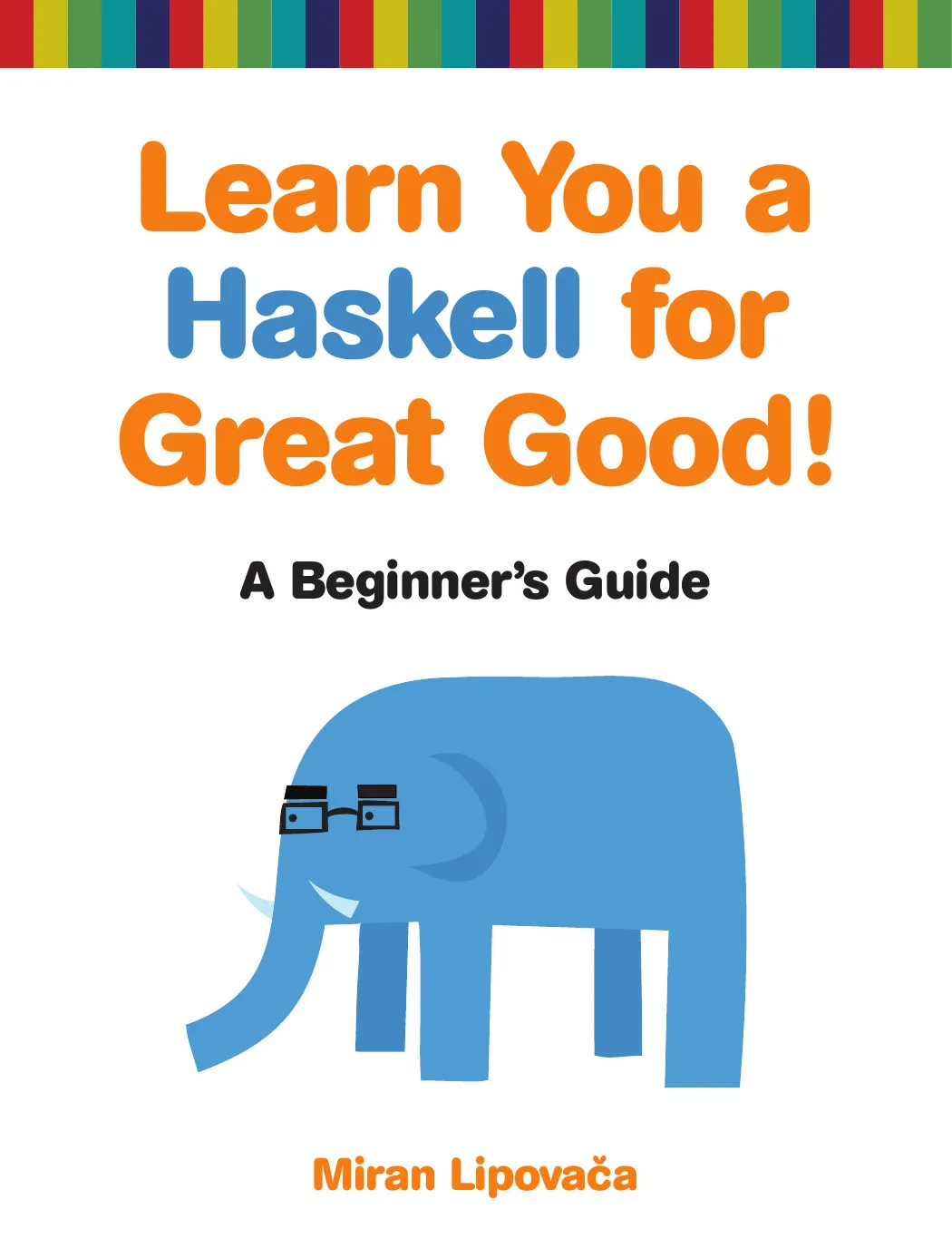
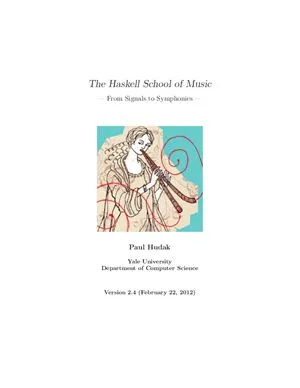
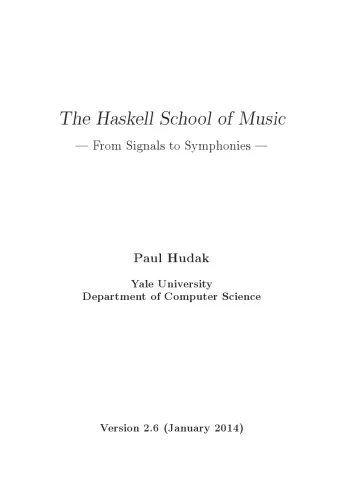
![[ An Introduction to Functional Programming Systems Using Haskell[ AN INTRODUCTION TO FUNCTIONAL PROGRAMMING SYSTEMS USING HASKELL ] By Davie, Antony J. T. ( Author )Jun-18-1992 Paperback](https://s3.refhub.ir/images/thumb/An_Introduction_to_Functional_Programming_Sys_34929.webp)
